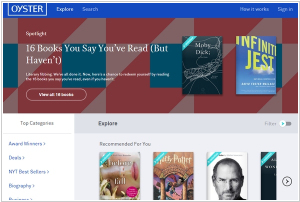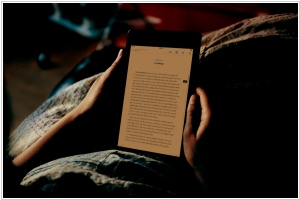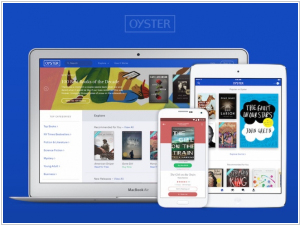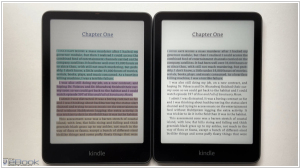Oyster
Oyster offers unlimited access to over 100,000 books for $9.95 a month, with new titles added all the time. We are currently rolling out invitations for iPhone and iPod Touch. We created Oyster to evolve the way people read and to create more of the special moments that only books can offer. From anywhere a mobile device can go—a bustling subway car, a quiet coffee shop, or lost at sea with a Bengal tiger—our mission is to build the best reading experience, one that is both communal and personal, anytime, anywhere.
Here are the latest news about Oyster:
2015. E-Book subscription service Oyster to shut down

Oyster, which debuted its “Netflix for books” app two years ago, has announced in a blog post that it will shut down the service by early 2016. If you have bought a book or are an Oyster Unlimited subscriber, you will receive an email about your account in the coming weeks. You will still be able to access and read purchased books indefinitely. Oyster Unlimited was priced at $9.95 a month, with Scribd being its primary competitor when it launched in September 2013. Competition intensified further when Amazon introduced its own e-book subscription service in July 2014. Despite launching with a challenging business model in a market dominated by a single player, Oyster's app distinguished itself from Kindle with features such as its user interface, curated book lists, essays and extensive selection.
2015. Oyster adds light-adjusting technology for easier e-reading

Ebook subscription service Oyster introduces a new feature to its e-reading platform that adjusts the color and brightness of mobile users’ screens to enhance the e-reading experience. Named Lumin, the software reduces the amount of blue light emitted by LED screens, which some recent studies suggest can be detrimental to readers’ eyes in dim environments and may disrupt sleep patterns. Lumin aims to help Oyster users read at night with less strain by replacing blue light with a gentler, amber light. While backlit e-ink screens are generally considered less harsh than those of smartphones or tablets, Oyster’s technology claims to cut the amount of blue light emitted by both types of devices by at least half.
2015. Oyster launches own e-book store

Oyster (the Netflix for Books) that charges $9.95 a month for unlimited access to a library of over 1 million titles, is expanding that model by launching its own e-book store. The store will enable Oyster to provide a truly extensive range of books to its readers. The interface isn’t changing significantly — you’ll simply see a much broader selection of books, with titles available via subscription displayed alongside those available for individual purchase. The e-book store is launching with all of the Big Five publishers in the United States on board, including Hachette, HarperCollins, Macmillan, Penguin Random House and Simon & Schuster. Competitor Scribd, by the way, also sells e-books individually but says it’s focused on the subscription model.
2015. E-Book subscription service Oyster to shut down

Oyster, which debuted its “Netflix for books” app two years ago, has announced in a blog post that it will shut down the service by early 2016. If you have bought a book or are an Oyster Unlimited subscriber, you will receive an email about your account in the coming weeks. You will still be able to access and read purchased books indefinitely. Oyster Unlimited was priced at $9.95 a month, with Scribd being its primary competitor when it launched in September 2013. Competition intensified further when Amazon introduced its own e-book subscription service in July 2014. Despite launching with a challenging business model in a market dominated by a single player, Oyster's app distinguished itself from Kindle with features such as its user interface, curated book lists, essays and extensive selection.
2015. Oyster adds light-adjusting technology for easier e-reading

Ebook subscription service Oyster introduces a new feature to its e-reading platform that adjusts the color and brightness of mobile users’ screens to enhance the e-reading experience. Named Lumin, the software reduces the amount of blue light emitted by LED screens, which some recent studies suggest can be detrimental to readers’ eyes in dim environments and may disrupt sleep patterns. Lumin aims to help Oyster users read at night with less strain by replacing blue light with a gentler, amber light. While backlit e-ink screens are generally considered less harsh than those of smartphones or tablets, Oyster’s technology claims to cut the amount of blue light emitted by both types of devices by at least half.
2015. Oyster launches own e-book store

Oyster (the Netflix for Books) that charges $9.95 a month for unlimited access to a library of over 1 million titles, is expanding that model by launching its own e-book store. The store will enable Oyster to provide a truly extensive range of books to its readers. The interface isn’t changing significantly — you’ll simply see a much broader selection of books, with titles available via subscription displayed alongside those available for individual purchase. The e-book store is launching with all of the Big Five publishers in the United States on board, including Hachette, HarperCollins, Macmillan, Penguin Random House and Simon & Schuster. Competitor Scribd, by the way, also sells e-books individually but says it’s focused on the subscription model.
Add comment












